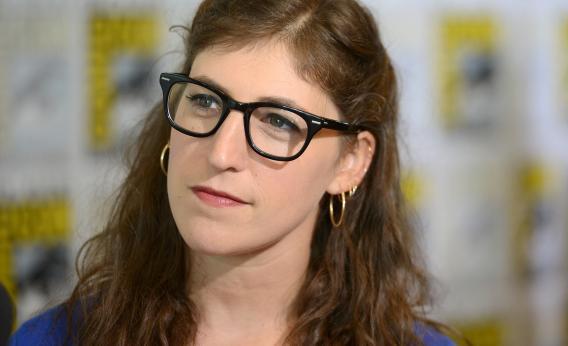When the fall television season kicked off last September, the single most significant trend in new programming was the number of new comedies starring and created by women. One of those, CBS’s 2 Broke Girls, about two young women—a daughter of an exposed Ponzi schemer and a sarcastic daughter of poverty—working as waitresses in a Brooklyn diner, was the breakout ratings hit of the season. And when the Emmy nominations for comedy acting came out this morning, three of those new shows—New Girl, Girls, and Veep—scored nods for their lead actresses.
It’s always possible to quibble with the Television Academy’s picks, given how rich television has become and how few slots are available. But this year’s nominations are a reminder that, contra to everyone who casts aspersions on a woman’s capacity to be funny, from Christopher Hitchens to Adam Carolla to, bizarrely, Joseph Gordon Levitt, women are funnier than ever, and they have more and more ways to be so. Let us count them:
The Nerds: Amy Poehler was nominated for her performance as city-bureaucrat-turned-Councilwoman-elect in Parks and Recreation, and in the supporting category, Mayim Bialik picked up a nod for playing Amy Farrah Fowler, the neurobiologist on The Big Bang Theory. Both women are defined by their enthusiasm. Leslie’s love of public service makes her the most optimistic character anywhere on television, and she and her boyfriend, Ben Wyatt (Adam Scott), share a dedication to dorky pop culture (he calls her khaleesi as a term of affection, a call-out to Game of Thrones). And Amy’s relationship with Sheldon (Jim Parsons), a fellow scientist, has been shaped by intellectual debates about their respective fields and his reaction to her professional accomplishments. It’s a delight to see female television characters who are defined by being incredibly good at and excited about things, rather than by how they look, or how other people react to their theoretically adorable pratfalls.
The Neurotics: Tina Fey’s harried showrunner on 30 Rock, Liz Lemon, and Lena Dunham’s wannabe writer on Girls, Hannah Horvath, have a lot in common: creative dreams they’re not quite living up to, friends whose drama they have to triage, and decidedly unladylike habits of scarfing spaghetti at dinner or a sandwich in airport security lines. These very pretty women have made themselves sloppy and awkward and liberated themselves to talk about money, ambition, and professional expectations, as well as to form some of the best friendships between men and women on television, whether it’s Liz’s bond with Jack Donaghy (Alec Baldwin), or Hannah’s with boss Ray, who pontificates about the greatness of McDonald’s and dreams that he “could change the world, one extremely dumb girl at a time.”
The Experienced Woman: Experience doesn’t necessarily mean wisdom for Selina Meyer (Julia Louis-Dreyfus), the titular second-in-command on HBO’s Veep, or for Jackie Peyton (Edie Falco), the nurse and recovering addict on Showtime’s Nurse Jackie. But as much as it can be awkward to watch them screw up, there’s something refreshing about middle-aged women who aren’t maternal, and are utterly unsuited to dispense life lessons, advice, or milk and cookies. If the right to screw up rather than to be portrayed as a perpetual saint is a mark of equality for women and people of color in entertainment, Selina and Jackie are screwing up all the way to feminist victory.
There are representatives of other tropes among the nominees, too, from Sofia Vergara’s old-school dizzy bombshell, Melissa McCarthy’s kind, overweight teacher, and Zooey Deschanel’s woodland creature, an anime character come to life. But the comedy nominations are dominated by performances where the characters’ looks are the least important things about them, and where the actors get to be as weird, and ambitious, and flawed as the men alongside them.
